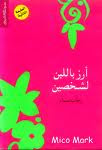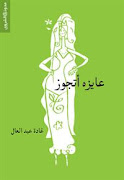Tunisia, 10th-11th December, 2010

The Centre for the Advanced Study of the Arab World & La Fondation Temimi pour la Recherche Scientifique et l’Information
The Arabic Language and the InternetIn recent years, the internet has come to dominate our lives. E-mails and instant messaging and chat are rapidly replacing conventional forms of communication. The Web is becoming the first resource people use for information enquiries, leisure and general activities. All of this has generated an expansion in the variety and creativity of language. This phenomenon is spreading worldwide (see Crystal regarding English, 2001, 2004, 2006 and Danet and Herring, 2007 for a variety of languages including Arabic). The linguistic plurality in the Arab world and the addition of the new factor (the internet) make researching this area not only fascinating, but also necessary. The emergence of the Internet made the debate over the status of the Standard Arabic (high) and the various dialects (diglossia) (low) more or less out of date, especially with the appearance of a “new” forms of writing that is making its way into Arabic literature, encouraging the use of the dialect (e.g. Ayza Atgawiz عايزة أتجوز(2008), Ruz bi laban li shakhsain رز بلبن لشخصين (2008) and many more by Dar Al Shourouq). As a direct reaction to this phenomenon, debate in the Arab world, including calls of “saving” Arabic are taking place across the region. “New” organizations have appeared, decrying the impacts of globalization on the Arabic language, culture and identity and calling for an immediate rescue of the language (e.g., the new Lebanese Organization “Fi’il Amr” فعل أمر. Its aim is not only to preserve the language, but also to seek ways of making it adaptable to the new technologies and to highlight the dominance of foreign languages, particularly English in the everyday use. The linguistic hegemony is manifested on the internet in various ways. It appears in the discourses related to language, identity and power (e.g., Arabic hegemony over the local language of Tamazight, the dominance of French/English as the languages of the colonizers and their relationships with the global hegemonic power of the West over East). The internet has also opened up a public space in which all manner of ideas and ideologies interact with each other and compete for attention, each making arguments through the debates that take place on websites, blogs, Facebook, Tweeter…etc (e.g., the Islamist versus the Secular websites) without a confident answer that this public sphere is actually leading to “change”. Their messages are transmitted through the use of language, which in itself is loaded with power-related issues that contribute to either the existing culture or help in the emergence of a new cultural field. The internet has helped the emergence of e-Arabic. It is a language (e-Arabic) that mixes, borrows and adapts, uses numbers, Roman letters, Arabic script characters, emotions and words from other languages (English and French) to engage not only with the globalised discourse as such but also to examine the specific ways in which the local frames the global. The questions that arise are related to whether or not this “new” language is strengthening or weakening Arabic? Is this not a case of language variations as a result of contacts and change? Is change here a “blessing” and part of a natural cycle or “curse” on Arabic? In other words, what is the scale of the impacts of globalization on Arab(ic) language and culture?The organizers, the Centre for the Advanced Studies of the Arab World (CASAW) based in the United Kingdom and Fondation Temimi pour la recherche scientifique et l’information (FTRSI) in Tunisia have made significant contributions to producing research on the society, history, and cultures of the Arab world. Both have Arabic as a central research preoccupation. This conference aims at exploring the latest research on Arabic and the Internet, from within the Arab world and intentionally, in the fields of linguistics, cultural studies, political science, sociology, literature, history and geography. The organizers seek to examine language as an embedded component in every discipline. Therefore, possible topics might include, but are not limited to:• Modern Standard Arabic (MSA) and dialects in and their relationship with the internet.1. Arabic diglossia, power and identity formation2. Multilingualism in the Arab regions.3. National language versus foreign/second language and their manifestation on the internet.• Arabic language, literature and the visual arts and their role in shaping the cultural field in the Arab world under the impact of the Internet.1. The emergence of “new” Arabic literature as result of internet use.2. Use of image (Flickr), social networks (Facebook, Tweeter...etc) as forms of expression.3. The relationship between the internet, Arabic literature and culture in general.• Arabic language and power and the question of “change” in the Arab world both virtually and physically.1. The role of Arabic Language Academies in monitoring and regulating the new terminologies.2. In what way “change” is received/assimilated in the Arab world?3. How different/similar is the “change” (if any) between the virtual and the physical spaces?• The cyber sphere and the marginal/oppositional voices appearing in the Arab world. The emergence of “new” voices virtually, what forms of Arabic they use and why?1. Marginal and oppositional voices in the Arab world.2. The emergence of local voices promoting local languages (Tamazight...etc). Proposals across disciplines are welcomed.
Please send abstract of 250 words by email to both:
Prof. Temimi: fondationtemimi@yahoo.fr /fondationtemimi@gnet.tn
Dr. Anissa Daoudi: anissa.daoudi@durham.ac.uk
The deadline for submission is June 2010.





